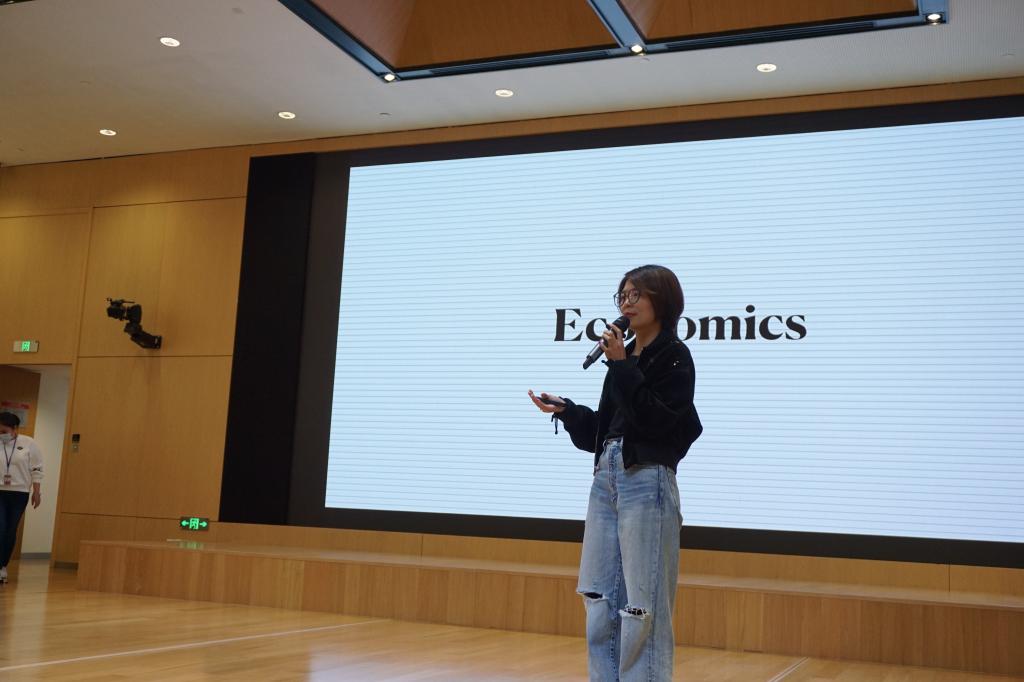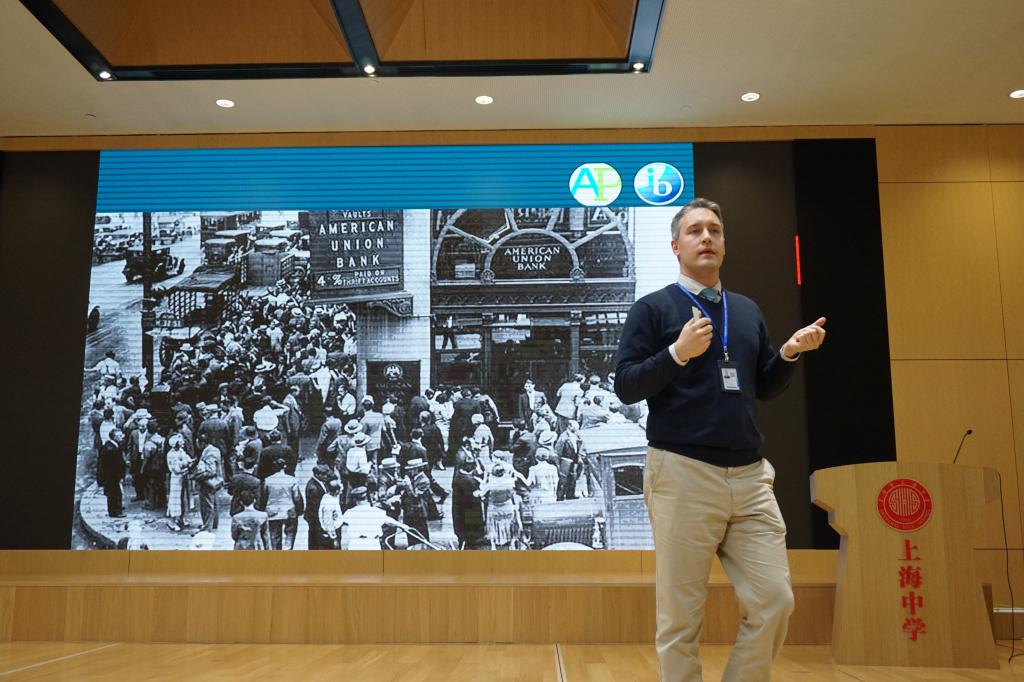
News
Grade 10: Economy and History Gateway Course
During the last period of Thursday, October 29th, 2020, at Zhentao Lecture Hall, 10th graders had their last gateway course for academy class on how to form critical perspectives when learning future economics and history courses.
At first, Ms. Ye gave a speech about learning how to effectively evaluate economic policies. For example, in big cities like Shanghai and New York City, there is a massive economic gap between the people of higher and lower social status. For laborers that work hard for long hours every day, they deserve to be paid the right amount of wage. However, different countries have different minimum-wage policies. Laborers in certain areas of the world are being paid way less than laborers from other countries. Sometimes, governments need to increase the minimum wage in order for their laborers to make a living. However, when governments actually increase the minimum wage, companies can’t afford to pay all their employees and thus people lose their jobs as a result of being laid off. The few employees who are left still have to work way longer in order to be paid more. As future global leaders, students should learn to be able to evaluate policies like this using many perspectives before deciding which is better.
Next, Mr. Ingham gave a speech on how to not only absorb overviews about history when learning, but also be able to realize that what we think we know when learning history might be very wrong. The critical perspective we use in history actually helps us point out biases in our everyday lives. Even if students might not like learning about ancient civilizations they think they can’t relate to, the goal of learning about them would be for students to gain a more balanced perspective on the world besides just the West. Doing document analysis in history actually helps students become more confident in disagreeing with a seemingly legit source without being afraid of doing so. Students were encouraged to seek out misconceptions and oversimplifications in many history textbooks and everyday life. They also need to understand that authors often beautify their own culture while leaving out minorities. There are also times when people make instant judgments without identifying the irony behind them. For example, we all say that democracy started in ancient Greece, where people were valued as equals. However, ancient Greeks actually used many slaves. On the other hand, ancient Persia used very few slaves but were seen as barbaric.


(Written by Catie Doran Pictures by Haige Zhang Supervised by Jialong Liu)











